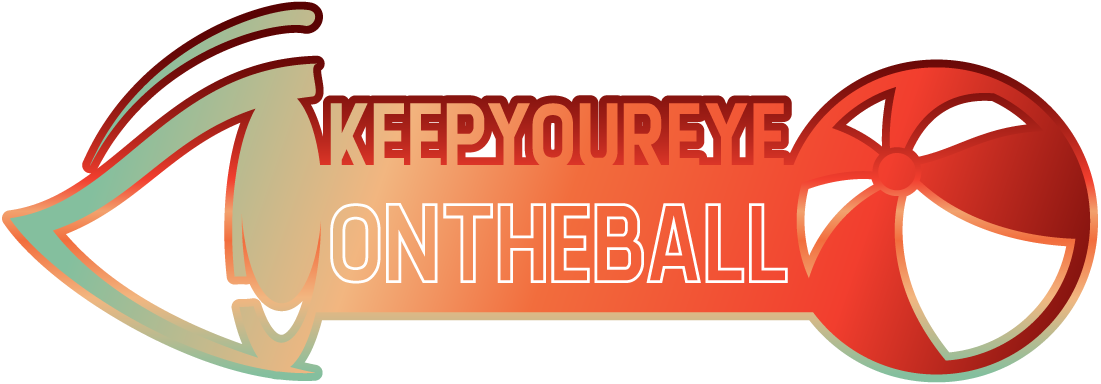As an athlete, achieving optimal muscle growth and recovery requires a well-planned approach to nutrition. A customized athlete meal plan can help you fuel your body for intense training sessions, support muscle growth, and maintain peak physical performance. By prioritizing key nutrients, balancing macronutrients, and incorporating specific nutritional strategies, you can create a meal plan that meets your unique needs and helps you reach your fitness goals.
Creating a Personalized Meal Plan for Optimal Muscle Growth and Recovery
As an athlete, fueling your body with the right nutrients is crucial for achieving peak performance and supporting muscle growth and recovery.
- Set Your Goals
- Assess Your Current Diet
- Consult with a Sports Dietitian or Nutritionist
- Focus on Whole Foods
- Stay Hydrated
- Monitor Progress and Adjust
Determine your specific nutritional needs based on your sport, training schedule, and fitness level. Consider factors such as caloric intake, macronutrient balance, and hydration requirements.
Evaluate your typical daily food intake, including portion sizes, meal frequency, and nutrient-dense foods. Identify areas for improvement and opportunities to increase protein, complex carbohydrates, and healthy fats.
Work with a qualified professional to develop a personalized meal plan tailored to your unique needs and goals. They can help you create a balanced diet that supports muscle growth and recovery.
Emphasize whole, unprocessed foods such as lean proteins, complex carbohydrates, fruits, vegetables, and healthy fats. Aim to include a variety of colors on your plate to ensure adequate nutrient intake.
Adequate hydration is essential for muscle function and recovery. Aim to drink at least eight glasses of water per day, and consider increasing fluid intake during intense training periods.
Regularly track your progress, adjusting your meal plan as needed to ensure you’re meeting your nutritional goals. Be patient and flexible, as it may take time to see improvements in muscle growth and recovery.
Sample Meal Plan
Here’s an example of what a personalized meal plan might look like:
- Breakfast
- Lunch
- Dinner
- Snacks
Scrambled eggs with spinach and whole wheat toast, topped with avocado
Grilled chicken breast with quinoa and steamed broccoli
Baked salmon with sweet potato and green beans
Apple slices with almond butter and Greek yogurt with berries
Additional Tips
Consider the following tips to enhance your meal plan:
- Timing Matters
- Get Enough Protein
- Incorporate Periodized Nutrition
Space out meals and snacks to maintain stable energy levels and support muscle growth and recovery.
Aim to consume 1.2-1.6 grams of protein per kilogram of body weight daily to support muscle growth and repair.
Vary your macronutrient intake based on your training phase, increasing carbohydrate and calorie intake during intense training periods and reducing them during less intense phases.
Key Nutrients for Athletes to Support Muscle Growth and Optimize Performance
To fuel your fitness journey and unlock peak performance, it’s essential to prioritize the right nutrients in your meal plan.
- Protein-Rich Foods: Aim for 1.2-1.6 grams of protein per kilogram of body weight daily, sourced from lean meats, fish, eggs, dairy, legumes, and plant-based options like tofu and tempeh.
- Complex Carbohydrates: Include whole grains, fruits, vegetables, and legumes in your diet to provide sustained energy and support muscle recovery.
- Healthy Fats: Nuts, seeds, avocados, and olive oil are rich in healthy fats that support hormone production, brain function, and overall health.
- Electrolyte-Balancing Minerals: Consume foods high in potassium, magnesium, and calcium to regulate fluid balance, nerve function, and muscle contractions.
A well-balanced diet that includes these essential nutrients can help athletes achieve optimal muscle growth and performance. As a general rule, aim to eat a variety of colorful fruits and vegetables, whole grains, lean proteins, and healthy fats at every meal.
Sample Meal Plan for Athletes
- Breakfast: Overnight oats with banana, almond milk, and walnuts, topped with scrambled eggs and avocado slices.
- Lunch: Grilled chicken breast with quinoa, roasted vegetables, and a side salad with mixed greens, cherry tomatoes, and balsamic vinaigrette.
- Dinner: Baked salmon with sweet potato, green beans, and a drizzle of olive oil.
- Snacks: Apple slices with almond butter, Greek yogurt with berries, and trail mix with nuts and dried fruit.
Tips for Optimizing Nutrition
- Stay Hydrated: Drink plenty of water throughout the day, aiming for at least eight glasses.
- Eat Regular Meals: Space out meals every three to four hours to maintain stable energy levels and support muscle growth.
- Listen to Your Body: Pay attention to hunger and fullness cues, adjusting portion sizes and food choices accordingly.
- Consult a Professional: Work with a registered dietitian or qualified healthcare professional to develop a personalized nutrition plan tailored to your needs and goals.
Optimizing Your Athlete Meal Plan for Maximum Muscle Growth and Energy
To maximize muscle growth and energy during intense training sessions, it’s crucial to strike the perfect balance between macronutrients.
-
Carbohydrates:
As an endurance athlete, carbohydrates should account for approximately 55-65% of your daily caloric intake. Focus on complex carbs like whole grains, fruits, and vegetables, which provide sustained energy and fiber.
-
Protein:
Aim for 15-20% of your daily calories to come from protein-rich foods like lean meats, fish, eggs, dairy, and plant-based options. Protein supports muscle repair and growth, making it essential for athletes.
-
Fat:
Include healthy fats like nuts, seeds, avocados, and olive oil in your diet, accounting for around 20-25% of your daily calories. Fats provide energy, support hormone production, and aid in nutrient absorption.
A well-balanced macronutrient ratio will help fuel your intense training sessions, support optimal recovery, and promote overall health and wellness.
Sample Daily Meal Plan:
-
Breakfast:
Overnight oats with banana, almond milk, and walnuts (400 calories, 60g carbs, 30g protein, 10g fat)
-
Lunch:
Grilled chicken breast with quinoa, steamed broccoli, and avocado (500 calories, 40g carbs, 50g protein, 20g fat)
-
Dinner:
Baked salmon with sweet potato, green beans, and almonds (600 calories, 60g carbs, 40g protein, 20g fat)
-
Snacks:
Apple slices with peanut butter (150 calories, 20g carbs, 8g protein, 8g fat), Greek yogurt with berries (200 calories, 30g carbs, 20g protein, 0g fat)
Remember to stay hydrated by drinking plenty of water throughout the day, aiming for at least eight glasses.
Tips for Optimizing Your Athlete Meal Plan:
-
Eat frequently:
Space out your meals every 2-3 hours to maintain stable energy levels and support muscle growth.
-
Listen to your body:
Pay attention to hunger and fullness cues, adjusting your portion sizes accordingly.
-
Experiment with new recipes:
Find healthy, delicious meals that suit your taste preferences and dietary needs.
By focusing on a balanced macronutrient ratio and incorporating these tips into your athlete meal plan, you’ll be well on your way to maximizing muscle growth and energy during intense training sessions.
Nutritional Strategies for Building Muscle Mass
To achieve peak physical performance and build muscle mass, athletes require a well-planned diet that fuels their bodies for optimal recovery and growth.
-
Caloric Intake
Athletes need to consume sufficient calories to support muscle growth and repair. Aim for an additional 250-500 calories above maintenance levels, depending on individual needs and activity level.
-
Macronutrient Balance
A balanced diet consisting of protein, carbohydrates, and healthy fats is essential for muscle growth and recovery. Aim for:
- 1.6-2.2 grams of protein per kilogram of body weight daily
- 2-3 grams of complex carbohydrates per kilogram of body weight daily
- 0.5-1 gram of healthy fats per kilogram of body weight daily
-
Meal Frequency and Timing
Eat 5-6 meals per day, spaced out every 2-3 hours, to keep muscles fueled and support growth. Prioritize post-workout nutrition within 30-60 minutes after exercise.
-
Hydration and Electrolytes
Adequate hydration is crucial for muscle function and recovery. Aim for 8-10 glasses of water per day and consider electrolyte supplements during intense training periods.
-
Supplements and Additives
Consider adding the following supplements to support muscle growth and recovery:
- Protein powder for convenience and added protein intake
- Branched-chain amino acids (BCAAs) for reduced muscle soreness and improved recovery
- Creatine monohydrate for increased strength and power output
By incorporating these nutritional strategies into your diet, you’ll be well on your way to building muscle mass and achieving peak physical performance.
Fueling Muscle Growth, Recovery, and Performance: Essential Foods and Nutrients for Athletes
As an athlete, I understand the importance of a well-planned meal strategy to optimize my body’s ability to perform at its best.
- Lean Protein Sources: Include lean protein-rich foods like chicken breast, fish, eggs, Greek yogurt, and legumes in your meal plan to support muscle growth and repair.
- Complex Carbohydrates: Focus on complex carbohydrates such as brown rice, quinoa, whole wheat bread, and vegetables to provide sustained energy and fiber.
- Healthy Fats: Nuts, seeds, avocados, and olive oil are rich in healthy fats that support hormone production, reduce inflammation, and promote overall health.
- Electrolyte-Rich Foods: Include electrolyte-rich foods like bananas (potassium), dates (potassium), coconut water (electrolytes), and nuts (magnesium) to replenish lost salts during intense exercise.
- Hydration: Adequate hydration is crucial for physical performance, so drink plenty of water throughout the day, aiming for at least eight glasses.
Key Nutrients for Athletes
- Protein: Aim for 1.2-1.6 grams of protein per kilogram of body weight daily to support muscle growth and repair.
- Carbohydrates: Consume complex carbohydrates before and after exercise to provide energy and aid in recovery.
- Vitamins and Minerals: Ensure adequate intake of vitamins C and E, iron, magnesium, and potassium through a balanced diet or supplements.
- Omega-3 Fatty Acids: Include omega-3 rich foods like salmon, walnuts, and chia seeds to reduce inflammation and promote heart health.
Sample Meal Plan for Athletes
A sample meal plan might look like this:
- Breakfast: Overnight oats with banana, almond milk, and walnuts
- Lunch: Grilled chicken breast with quinoa, steamed vegetables, and avocado
- Dinner: Baked salmon with sweet potato, green beans, and almonds
- Snacks: Apple slices with peanut butter, Greek yogurt with berries, and trail mix with nuts and dried fruits
Remember to stay hydrated by drinking plenty of water throughout the day and adjusting your meal plan according to your individual needs and preferences.
Effective Meal Planning Strategies for Athletes
To achieve optimal performance and muscle gain, athletes require a well-planned diet that fuels their body with essential nutrients.
- Macronutrient Balance: Aim for a balanced mix of carbohydrates, protein, and healthy fats to support energy production, muscle growth, and recovery.
- Hydration: Drink plenty of water throughout the day to stay hydrated and prevent dehydration, which can lead to decreased performance and increased risk of injury.
- Meal Frequency: Eat 5-6 meals per day, spaced out every 2-3 hours, to keep your muscles fueled and support muscle growth.
- Post-Workout Nutrition: Consume a mix of carbohydrates and protein within 30-60 minutes after exercise to aid in muscle recovery and growth.
- Electrolyte Balance: Include electrolyte-rich foods or supplements in your diet to maintain optimal electrolyte levels and prevent muscle cramping and fatigue.
Sample Meal Plan:
A sample meal plan for athletes may include:
- Breakfast: Overnight oats with banana, almond milk, and walnuts (400 calories, 30g protein)
- Lunch: Grilled chicken breast with brown rice and steamed vegetables (500 calories, 40g protein)
- Dinner: Baked salmon with sweet potato and green beans (600 calories, 50g protein)
- Snacks: Apple slices with peanut butter (150 calories, 8g protein), Greek yogurt with berries (200 calories, 20g protein)
Conclusion:
A well-planned diet is crucial for athletes looking to gain muscle and improve overall performance. By focusing on macronutrient balance, hydration, meal frequency, post-workout nutrition, and electrolyte balance, athletes can fuel their bodies for optimal performance and muscle growth. Remember to consult with a registered dietitian or healthcare professional to develop a personalized meal plan tailored to your specific needs and goals.





0 Comments